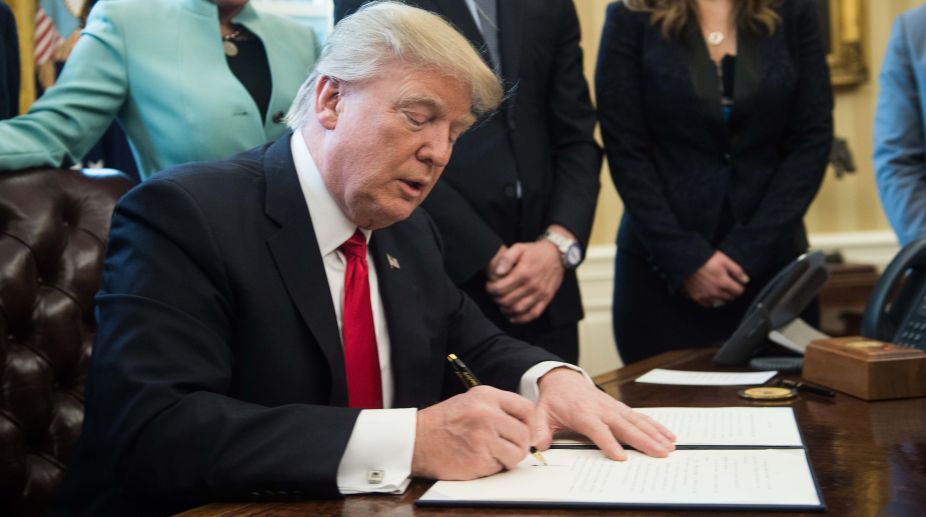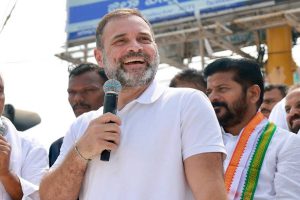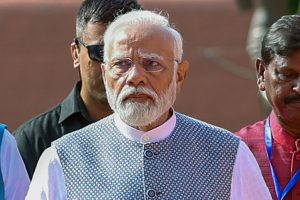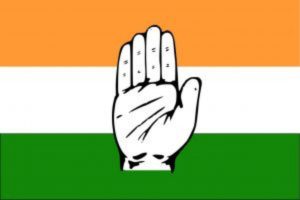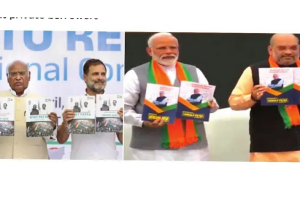Is the world dangerously moving closer towards war?
The South China Morning Post quotes an official from China’s Central Military Commission writing, “A war ‘within the president’s term ‘ or ‘war breaking out tonight’ are not just slogans, they are becoming a practicality reality” (The Statesman 29 January 2017). Quite obviously, it is in reaction to the recent statements coming out of the new administration in the United States.
This view is shared by Dan De Luce who in a recent post in the Foreign Policy Magazine (26 January 2017) has accused Trump of leading the world to the brink. He quotes Evan Medeiros who served as the top advisor on Asia in Barack Obama’s White House, labeling the US under Trump as both ‘confrontational and disoriented’ on the South China Sea. He argues that the new administration’s statements about US policy towards China and South China Sea are not only antagonizing and provoking China but also confusing allies and aggravating tensions.
Rex Tillerson, Trump’s choice for secretary of state, stunned lawmakers and foreign governments at his January 11 Senate confirmation hearing when he said that the United States would be ready to block China’s access to artificial islands it is building in the South China Sea. If it is a serious statement of policy that the US would be ready to act upon, it would require a blockade ‘which is an act of war’.
Like on many other issues, Trump believes, and he has very much given everyone to so understand from his campaign days, that it is time for the US to replace its weak dealing with China by a strong hand, assuming that getting tougher with China will lead Beijing to back down. So he is ready to break with the US stance on China of the past several decades.
The statements emanating from the new US administration seem to suggest it is “willing to court conflict with China without being terribly well-informed on this issue,” De Luce quotes Mira Rapp-Hooper of the Center for a New American Security as saying.
The idea behind Trump’s approach seems to be that the United States has been weak in its dealings with Beijing, and that a strong hand is needed. Experts say the Trump administration is testing the hypothesis that if Washington simply gets tougher with China, Beijing will back down. But US encounters with China during Clinton or Bush administrations were by no means easy to handle. China has only grown more powerful today with a massive economy and an increasingly capable military ‘equipped with ship-killing missiles that threaten the U.S. Navy’s dominance’. And its leaders confidently believe that their country’s moment has arrived.
Whether on Taiwan or South China Sea, China has made clear that it is not going to back down under pressure. Foreign ministry spokeswoman Hua Chunying said: “We urge the United States to respect the facts, [and] speak and act cautiously to avoid harming the peace and stability of the South China Sea.”
The Trump administration’s policies, as they are taking shape through statements and actions so far, appear to be directionless but provocative on all fronts (think of the newly declared immigration policy). Talking about the Indo-Pacific alone, it is baffling, to say the least, why the US should abandon the Trans-Pacific Partnership, a proposed 12-nation trade pact with strong support among Asian allies and partners which was a signature step of the Obama administration.
Ash Carter, Defence Secretary in the preceding Obama administration, recently in a piece titled, “The Rebalance and the Asia-Pacific Security” (Foreign Affairs, Nov-Dec 2016) has shown the important role the US has played in this region since World War II: “During Democratic and Republican administrations, in times of surplus and deficit, and in war and peace, the United States has played a part in the region’s economic, diplomatic, and security affairs… The results have been extraordinary: the Asia-Pacific has long been a region where every nation has the opportunity to thrive.” According to him, the Trans-Pacific Partnership aimed to bind together the United States more closely with 11 other economies in the region “is an opportunity that the United States…should not miss.”
Now the Trump administration’s pull out of the TPP has given a severe blow to its credibility in the region, from Vietnam to Japan, and China will likely fill in the void. While threatening the use of force to restrict China in the South China Sea, Trump has given it a free hand in the Indo-Pacific.
What should India do if the war talk between the US and China becomes more intense with the possibility of the impossible looming large?
On a number of issues like terrorism and India’s attempt to become a NSG member, India and China are not on the same page. The Modi-Xi bonhomie of 2014-15 has paled of late. India has neither warmed up to the ‘One-Belt-one-Road’ idea floated by China nor hesitated to express serious reservations on the China-Pakistan Economic Co-operation (CPEC) which runs through Pak-occupied Kashmir. On the other hand, India has positioned herself closer to the United States.
Under Modi government India has signed, significantly departing from its policy of not entering into a military agreement with any major power, the Logistics Exchange Memorandum of Agreement (LEMOA) with the United States which will allow their militaries to work closely and use each other’s bases for repair and replenishment of supplies. Although under the agreement, as reported, comprehensive logistics support will be decided on a case-by-case basis by the parties, the agreement does include “reciprocal logistics support…during authorised port visits, joint exercises, joint training, and humanitarian assistance and disaster relief efforts” (Indian Express 31 August 2016). Thus, there is enough room for India under LEMOA getting entrapped in a US-China conflict.
There is, indeed, no reason for India to welcome a war at its doorstep now or in the foreseeable future, not to speak of getting engaged in such a war. If that be so, the best policy for India would be to help reduce such a possibility. Despite some amount of coolness in India-China relations of late, it is a fact that both China and India have maintained a decent relationship during the last few decades. Trump also is communicating with Modi. Therefore, India still has some leverage with both. It should take this opportunity and urge upon them the need for approaching and settling the issues not in terms of a zero-sum game but pragmatically within the framework of benevolent self-interest and consensus among regional countries. In today’s world no country has the privilege of dragging the whole world into a nuclear holocaust. In such an effort for world peace Modi will certainly find collaborators among leaders from May to Merkel and beyond.
The writer is former Professor of Political Science, Calcutta University, and currently Advisor, Observer Research Foundation, Kolkata

